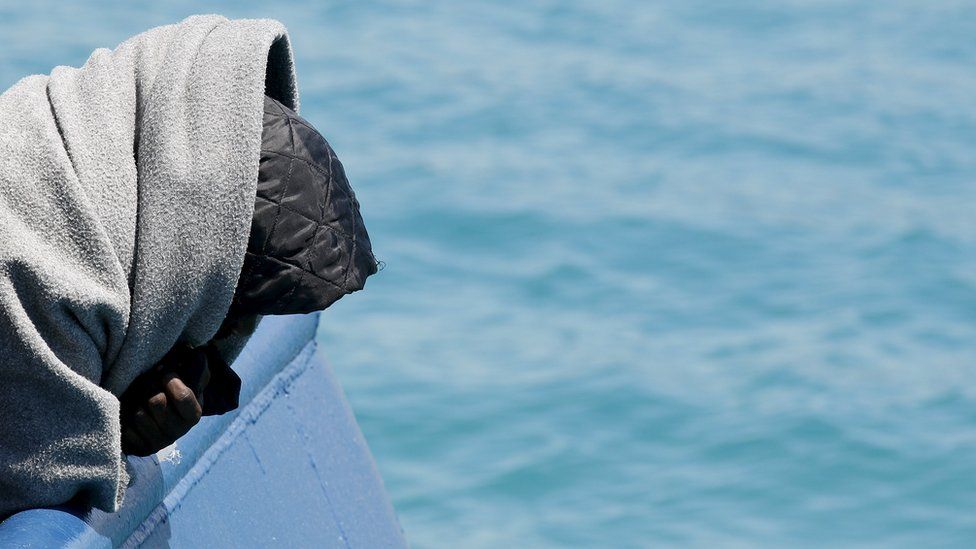

-
27 August 2015
- From the section Africa

Hundreds of people are feared dead after two boats carrying up to 500 migrants capsized off the Libyan city of Zuwara, residents and officials say.
The first boat, which signalled for help early on Thursday, had nearly 50 people on board.
The second, which sank much later, had as many as 400 passengers.
The Libyan coastguard is still conducting a rescue operation for that boat, but most of those who were on board are feared dead.
At least 100 bodies were taken to a hospital in Zuwara, west of Tripoli, a resident told the BBC.
The victims included migrants from Syria, Bangladesh and several sub-Saharan African countries, the resident said, but the information could not be independently verified.
At least 20 migrants have reportedly been rescued from the two incidents.
About 2,400 migrants have died trying to cross the sea to Europe so far this year, the UN says.
More than 100,000 others have landed in Italy, whilst another 160,000 have crossed to Greece.
On Wednesday, the bodies of at least 51 people were found in the hold of a stricken ship off Libya’s coast.
They were picked up by a Swedish coastguard ship that also rescued more than 400 survivors – among at least 3,000 migrants saved that day.
The Swedish ship, Poseidon, docked in the port of Palermo, Sicily, on Thursday.
On Saturday, about 4,400 migrants were rescued from boats off the coast of Libya, in one of the biggest single-day operations mounted to date.
Many of those who attempt the journey are fleeing conflict or persecution, and set off from Libya in boats organised by smugglers. Libya has had two competing governments for the past year and is largely ruled by rival militias.
The Libyan coastguard has limited capacity to undertake large-scale rescue missions at sea, BBC North Africa correspondent Rana Jawad reports from Tunis.


